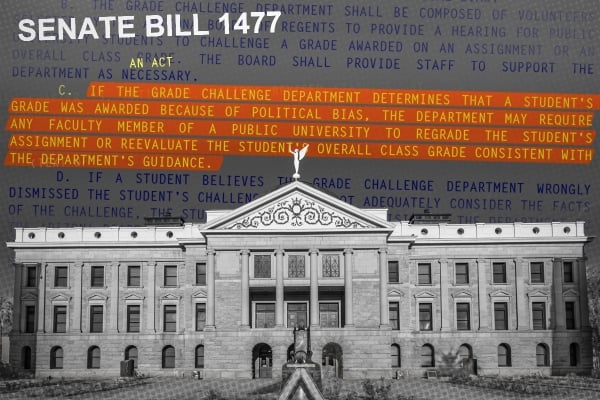A new bill in Arizona has sparked controversy as it aims to allow students to allege “political bias” in English classes. Senate Bill 1532, also known as the Free Speech in Higher Education Act, would permit students to file complaints if they feel that their English instructors are expressing political opinions that go against their own beliefs.
The proposed legislation has raised concerns among educators and free speech advocates, who worry that it could have a chilling effect on academic freedom and intellectual discourse in the classroom. Critics argue that the bill would infringe on professors’ ability to freely express their views and challenge students to think critically about complex issues.
Proponents of the bill, however, argue that it is necessary to protect students from professors who may use their positions to promote a particular political agenda. They argue that students should have the right to a neutral and unbiased education, free from the influence of their instructors’ personal beliefs.
The bill specifically targets English classes, which are often seen as hotbeds of political debate and discussion. Supporters argue that English instructors are more likely to inject their personal opinions into their teaching, potentially influencing students’ thinking and hindering their ability to form their own opinions.
If passed, the bill would require universities to adopt policies that allow students to file complaints of political bias in English classes. Instructors found to have violated these policies could face disciplinary action, including termination.
Critics worry that the bill could lead to a flood of baseless complaints and create a hostile environment for professors who may fear retribution for challenging students to think critically and engaging in controversial topics.
Ultimately, the debate over Senate Bill 1532 raises important questions about the balance between academic freedom and student rights. While ensuring that students receive a fair and impartial education is important, it is crucial to protect the ability of professors to freely express their views and challenge students to think critically about complex issues.
As the bill makes its way through the legislative process, it is clear that the controversy surrounding it is far from over. Both sides of the debate will continue to voice their concerns and advocate for their positions, as the fate of academic freedom in Arizona hangs in the balance.



